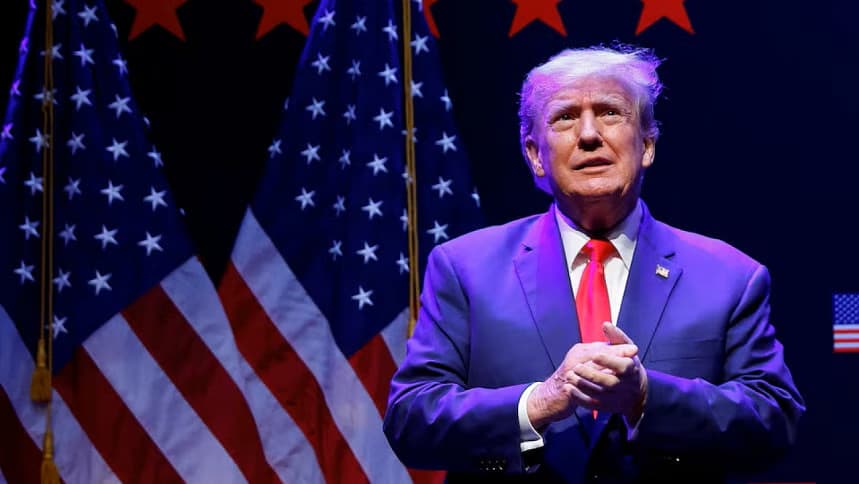Ukraine War

Where message of peace in changing world order
In the face of an intense movement led by ‘Gen Z’, Nepal’s Prime Minister resigned, and soon afterwards a strong anti-government movement erupted in France. ‘Gen Z’ led the movement in Nepal, while the protests in France are being led by the leftists. Yesterday nearly 200,000 protesters took to the streets. Across the country, they declared a ‘block everything’ movement. As a result, there was widespread clashes between protesters and French law enforcement. People lifted rubbish bins from the streets and hurled them at the police. Countless vehicles were set on fire. According to international media reports, to bring the protests under control the French government deployed 80,000 police across the country. Around 500 people have been arrested. More than a hundred were injured.

Trump–Putin meeting: Balance of success and failure
In the middle of the night on 15 August Bangladesh time, the meeting between US President Donald Trump and Russian President Vladimir Putin took place in Alaska, United States. International media are reporting that there was no solution to the Ukraine war, no agreement, and that the Putin–Trump talks failed. Since the announcement of the meeting, the matter had been the talk of the world; but no one has clearly said what the agenda of the talks was, or what the aim was. Mainly, the discussion was about Ukraine; but there was no question of any agreement or treaty.

Deepening geopolitical and geoeconomic tensions and risks: A global overview
The world is navigating an era of unprecedented geopolitical and geoeconomic turbulence, marked by shifting alliances, resource competition, and economic fragmentation. Below is a detailed analysis of key flashpoints and their global implications.

Will the Russia-Ukraine war end?
As of April 28, 2025, the Russia-Ukraine war has dragged on for three years, three months, and five days—a total of 1,159 days. In terms of casualties and destruction, it is the most devastating conflict in Europe since World War II. While Ukraine has borne the brunt of the damage, the war has affected the entire world economically and politically—particularly Southeast Europe and Asia. Since returning to office, U.S. President Donald Trump has been calling for an end to the war and promising to support a peaceful resolution.

Some thoughts on the budget for FY 2025-26
The preliminary work for drafting the national budget for the upcoming fiscal year (2025-26) has already begun. If everything goes as planned, the proposed budget will be presented for approval on June 5. Since there is no active national parliament at present, the proposed budget for the next fiscal year will be submitted for approval to the advisory council of the interim government. Since Bangladesh gained independence, the national budget has been approved through the parliament every year, except during periods of military rule and the fiscal years 2007-08 and 2008-09.

Contractionary monetary policy alone can’t solve inflation woes
The Bangladesh Bank announced the second monetary policy of the current fiscal year on February 10, 2025. This was the second monetary policy for the fiscal year 2024-25 and the first policy under the interim government. There was considerable anticipation regarding the announced policy, and many experts had expected it to be contractionary in nature. Indeed, the policy can be described as contractionary in terms of its characteristics, as it focuses more on controlling the existing high inflation rather than achieving high growth.

What will Trump’s policy be on Bangladeshi immigrants?
Donald Trump was sworn in as the 47th President of the United States for a second term on January 20, with a stern stance against undocumented immigrants. In his inaugural speech, he declared, “America’s golden era begins today,” and emphasized his “America First” policy, vowing to restore sovereignty and security. He proclaimed, “We will become the envy of every nation. No one will exploit us anymore. Today marks the end of America’s decline. God has kept me alive to make America great again.”

Is Trump's era the start of a new world order?
Donald Trump is set to take the oath as the elected president of the United States. In the current era, nearly every country in the world has some form of relationship with others. These relationships can be either friendly or adversarial, meaning that every country, especially major powers, has interests intertwined with others. Accordingly, the United States, the world’s largest economy and military power, has commercial, military, and even ideological ties or conflicts with nearly every country. These relationships also experience ups and downs. It is important to note that those who believe that US foreign policy does not change regardless of which party forms the government are influenced by outdated thinking. Such thinking is old-fashioned, a relic of the Cold War era, when the US maintained consistent policies toward the Soviet Union and the countries in the socialist bloc, regardless of which party was in power. However, that bloc has now collapsed, and even large socialist countries like China are now operating under free-market principles.

Bashar al-Assad’s Fall: The message to Russia and Iran
Bashar al-Assad’s Fall: The message to Russia and Iran

